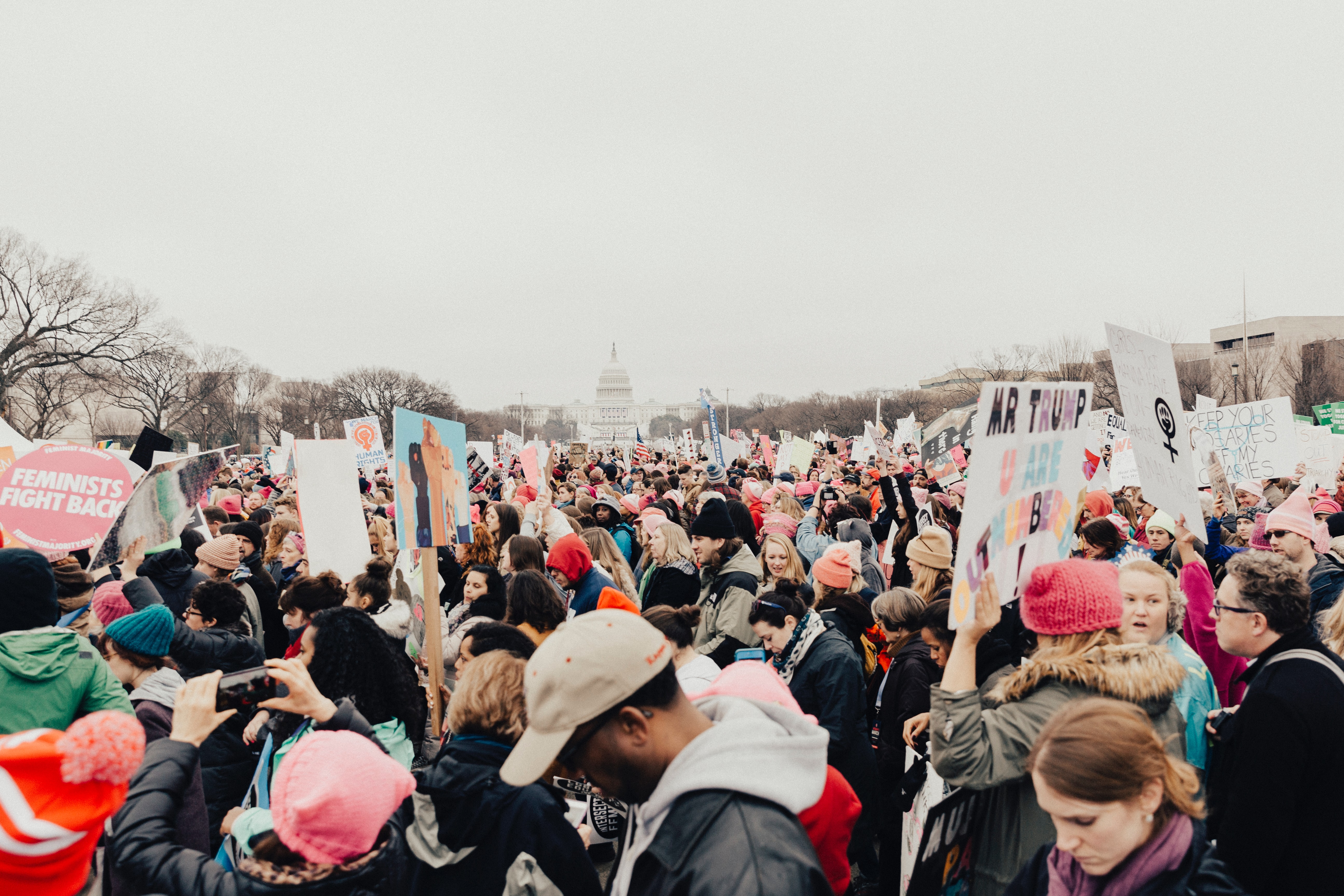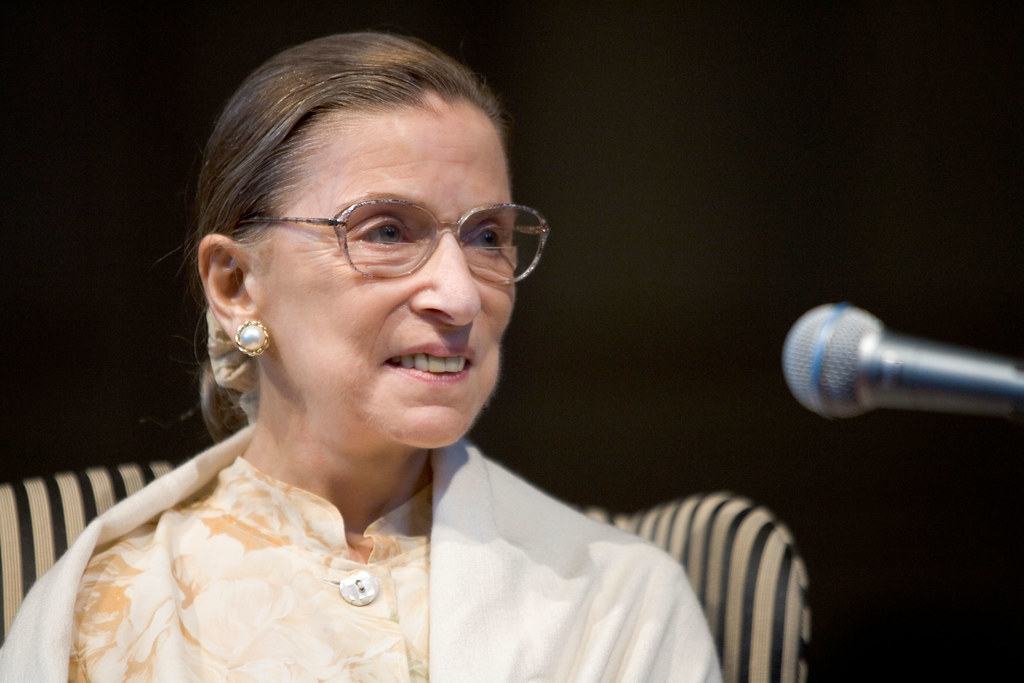
As Republican politicians rush to replace Justice Ginsburg on the Supreme Court, pro-choice activists fight to preserve her legacy and preserve the viability of Roe v. Wade.
By: Morgan Moone, associate editor
Justice Ruth Bader Ginsburg’s death leaves the balance of the Supreme Court at risk. A lifetime appointment from President Donald Trump, his third, would result in a generation of conservative, anti-choice, anti-human rights votes. The Court already held a fragile 5-4 majority favoring the more conservative judges, and a new appointee under the Trump administration would solidify this majority.
Mere hours after Ginsburg died, Majority Leader Mitch McConnell irreverently declared that the Senate would indeed move forward in confirming a new Supreme Court Justice. As the United States braces to enter month seven of a devastating pandemic, McConnell is moving swiftly to secure power in the Supreme Court while a new COVID relief bill for the American people stalls in Congress.
Ginsburg’s growth into a social justice giant and the most popular Supreme Court justice was a result of her unyielding dedication to ensuring that individuals did not remain under the rein of patriarchal systems. She declared this point in American history as “an aberration.” Her role as a lawyer and eventual Supreme Court justice helped the public begin to view the Constitution as a feminist, living document that needed — and deserved — constant improvement to better reflect the ideals of modern America and our hopes for the future.
Over $100 million has been raised through ActBlue since her death, a result of many Americans reacting to the rushed Supreme Court nomination by President Trump, due this Saturday. Thousands posted on social media, calling out the hypocrisy of an attempted nomination and confirmation in an election year after President Barack Obama’s efforts to nominate Judge Merrick Garland in 2016. Republicans in Congress refused to consider President Obama’s nominee after Justice Antonin Scalia died in February 2016, citing the November election as reason to postpone a SCOTUS pick. Senate Judiciary Committee Chairman Charles E. Grassley noted in 2016: “In America, a democracy, you have to accept the judgment of the voters.”
As the United States braces to enter month seven of a devastating pandemic, McConnell is moving swiftly to secure power in the Supreme Court while a new COVID relief bill for the American people stalls in Congress.
Fast-forward four years, and Republicans refuse to back down. With the possibility of another Trump appointee becoming more likely, the viability of Roe v. Wade is called into question. The same concerns voiced over the decision to appoint Justice Brett Kavanaugh to the Supreme Court are reverberating even stronger now that the threat of another anti-choice justice is back on the table. Though Trump has not yet named a potential replacement to the court, Amy Coney Barrett has been identified as a front-runner. Other potential picks include Amul Thapar, Barbara Lagoa, and Allison Jones Rushing.

Trump has repeatedly signaled that the nominee would likely be a woman, but that is no comfort to pro-choice activists. Barrett previously questioned the court’s ruling in Roe v. Wade, declared Obamacare’s birth control mandate a “grave violation of religious freedom,” and would likely rule against abortion access in the future. In 2018, she sought reconsideration of a decision that invalidated an Indiana law requiring that fetal remains be buried or cremated after an abortion. Coupled with Justice Kavanaugh, Judge Barrett’s anti-choice agenda could restrict reproductive health access for generations if she is appointed, and its impact will largely be felt by low-income and communities of color.
The weakening of Roe has been ongoing since the Supreme Court handed down its decision in 1973, with states continuously enacting TRAP (Targeted Regulation of Abortion Providers) laws and other accessibility limitations. As a result, hundreds of state-level abortion funds and collaboratives that seek to provide resources to individuals needing to travel across state lines to obtain abortions have been founded. Abortion funds are sustained largely, or solely, by individual donations and are life-saving and life-affirming resources for individuals seeking reproductive healthcare. Many have sought to disseminate information relating to self-managed abortions, where individuals can terminate pregnancies outside of the medical system.
Coupled with Justice Kavanaugh, Judge Barrett’s anti-choice agenda could restrict reproductive health access for generations if she is appointed, and its impact will largely be felt by low-income and communities of color.
The fact that Justice Ginsburg’s death comes just months after the contentious June Medical Services ruling makes that decision’s impact felt a little more deeply. Another abortion case, Food and Drug Administration v. American College of Obstetricians and Gynecologists, is already before the court, filed by the ACLU challenging unnecessary requirements imposed by the FDA in order to receive a medication abortion. Continued attacks on abortion access, especially during the pandemic, make it clear that bodily autonomy continues to be at stake.
Sara L. Aunsworth, legal and policy director of If/When/How, previously told Law at the Margins, “What is exceedingly clear is that anti-abortion politicians and courts, convinced that the constitutional protections for reproductive rights cannot hinder their activism, are bent on exploiting every opportunity — even a global pandemic — to stop people from self-determining their reproductive lives.”
The exploitation has now extended to the political process of Supreme Court nominations and the impending November election.





